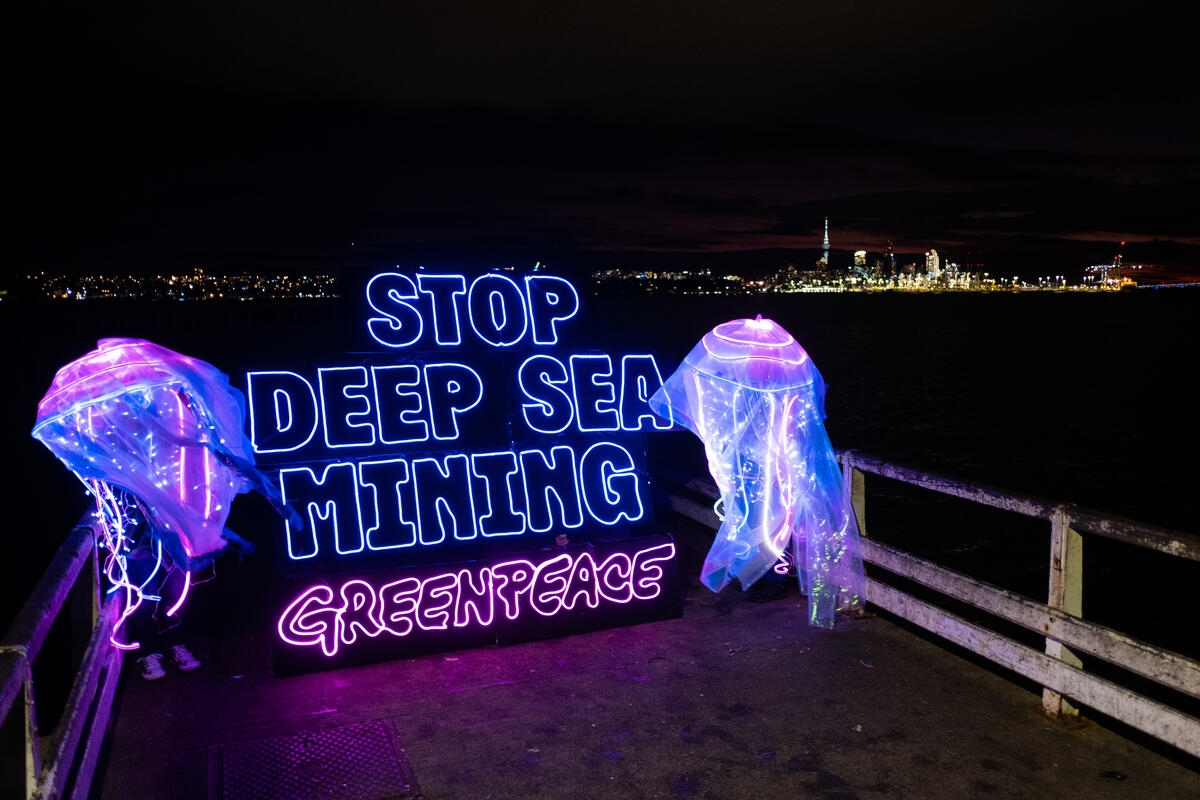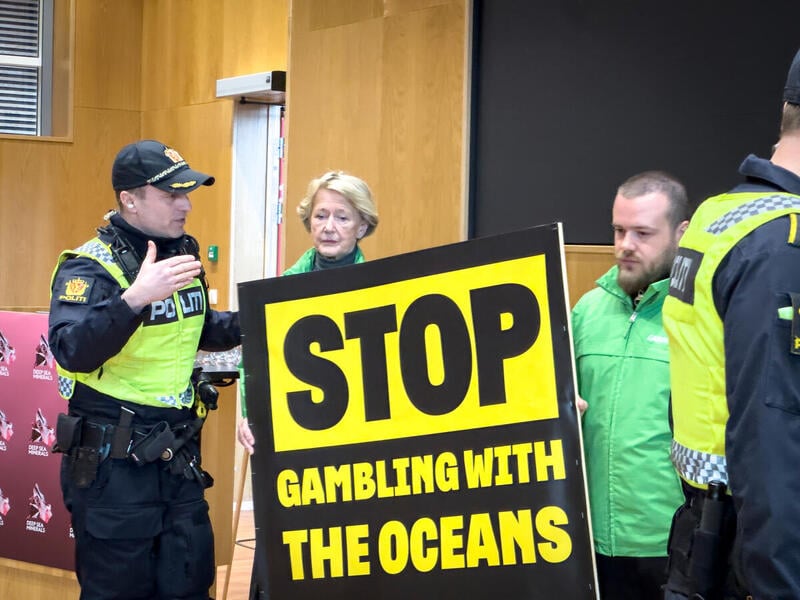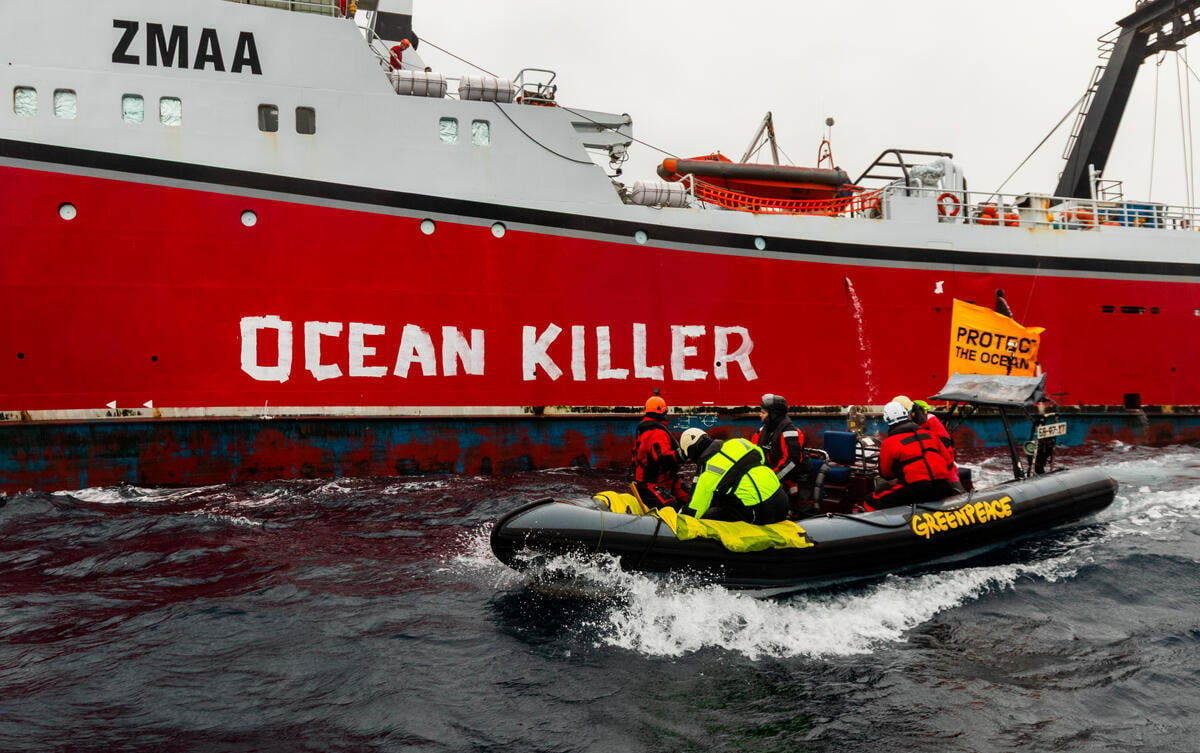The natural wonders of the deep ocean are in danger despite the adoption of a historic Global Oceans Treaty. Right now, the greedy deep sea mining industry is hoping to rip up the seabed for profits, and there’s very little standing between their mining machines and fragile marine ecosystems that took millennia to develop.
Deep sea mining would risk disturbing and releasing carbon stored in deep sea sediment, and threaten the livelihoods and traditions of people from the Pacific and their spiritual connection to the ocean. The industry outrageously claims such ecological risks are needed for the energy transition, but monster machines scraping the seafloor beyond the surface, leaving a trail of destruction, cannot be part of the solution to save the planet.
With crucial meetings of the International Seabed Authority taking place in Kingston, Jamaica from 10-28 July, let’s take a closer look at the threat to the deep sea, how negotiations are progressing (check back for updates each week), and the people power mobilizing to stop deep sea mining:
Raise your hand if you’ve heard about the ‘two year rule’
Not seeing a lot of raised hands? That’s because the “two year rule” is an obscure provision in the Law of the Sea. Nevertheless, it has been exploited by the deep sea mining industry to pressure governments to allow deep sea mining.
Nauru, a small island state that sponsors the dodgy The Metals Company, triggered this provision two years ago. By doing so, they essentially started a countdown to allow a contractor to try to start deep sea mining — even if no regulation is in place at the end of the two years. After squandering an opportunity to shut the door to deep sea mining during the last meeting of the International Seabed Authority in March, governments still have no idea what to do if a company applies to start mining after 9 July, when the two years run out.
The global ocean doesn’t belong to anyone. We can’t sell it to the highest bidder.
Imagine that we could stop a dangerous extractive industry from existing. Imagine if we could stop offshore drilling at the dawn of the oil age. This is where we are now with deep sea mining. Governments are currently at a crossroads, where they can choose between doing what is right or going down a very dangerous path.
People power can stop deep sea mining
All around the world, people are calling for a stop to deep sea mining — and governments are listening. On 28 June, Switzerland joined the group of 16 countries opposed to deep sea mining. Globally, more than 800,000 people have signed the petition against deep sea mining. One day after another, mobilization grows. Together, we need to increase political pressure because we can’t afford the risk of destroying the oceans.
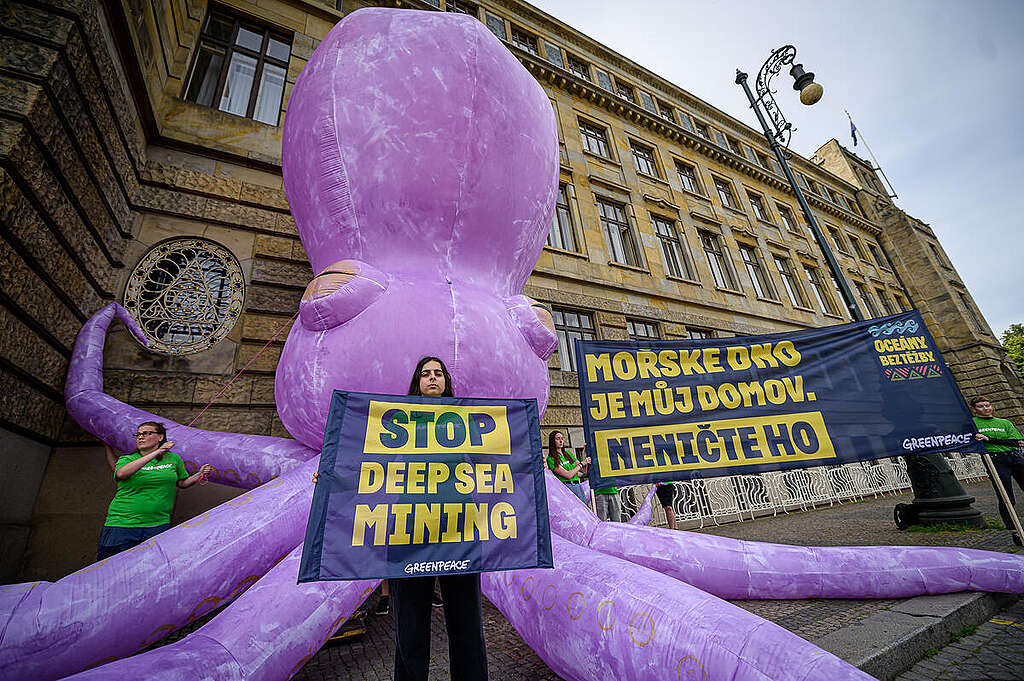
But people power and mobilization is just one part of the story. Meanwhile, the Norwegian government recently decided to pursue deep sea mining in its seabed in the Arctic! There is no time to waste because after 9 July, the risk posed by deep sea mining will be more immediate than ever.
A clear signal needs to be sent by world leaders at the ISA: deep sea mining has no future.
What is the latest news from the ISA meetings in Kingston?
Week 1: The first week of meetings showed that the global resistance to deep sea mining is still growing: Canada, Finland, Portugal and Brazil joined the call for a moratorium or a precautionary pause on deep sea mining. Meanwhile, members of Parliament in the UK called on their government to go for a pause on deep sea mining to protect biodiversity.
Governments are not the only ones to come out against deep sea mining: the tuna industry is also being vocal on the impact deep sea mining could have on tuna populations.
Week 2: The ISA Council meeting ended on 21 July with quite a tense atmosphere. Most of the discussions on the last day happened behind closed doors, where NGOs and journalists are not allowed (not that the journalists were allowed full access the rest of the time).
The first two weeks of negotiations have been highly focused on how to facilitate mining. The decisions taken by the governments in the Council do not reflect the rapidly growing concern and opposition to deep sea mining across the world. Voices against deep sea mining have never been so loud — from the fishing sector to financiers, Indigenous Peoples, scientists and big business. Governments didn’t give the greenlight to the industry but the door is still open for deep sea mining.
Up next is the ISA Assembly meeting, where more countries will be present. True oceans leaders must take the floor and talk about a moratorium on deep sea mining. They need to hear the +800,000 voices from around the world asking to stop deep sea mining. They need to hear the voices from Indigenous Peoples from the Pacific whose livelihoods, cultural heritage and traditions are threatened by deep sea mining.
Week 3: After three weeks of intense negotiations, the ISA Assembly meeting ended 28th July. The good news: A growing movement of resistance to deep sea mining means the green light was not given to the industry to start commercial deep sea mining operations.
The threat remains, but this outcome means the oceans and the frontline populations from the Pacific can have a little respite. It also gives the movement to stop deep sea mining more time to keep building resistance and to find new allies to face the stubbornness of a handful of pro-mining governments. By the end of the July meetings, there were 21 countries calling for, at least, a precautionary pause on deep sea mining. In the next months, we’ll make sure to get more, build people power and elevate messages from our allies from the Pacific Indigenous communities.
There is a big fight ahead, and we’ll need all your determination and energy to protect the oceans!
How to get involved
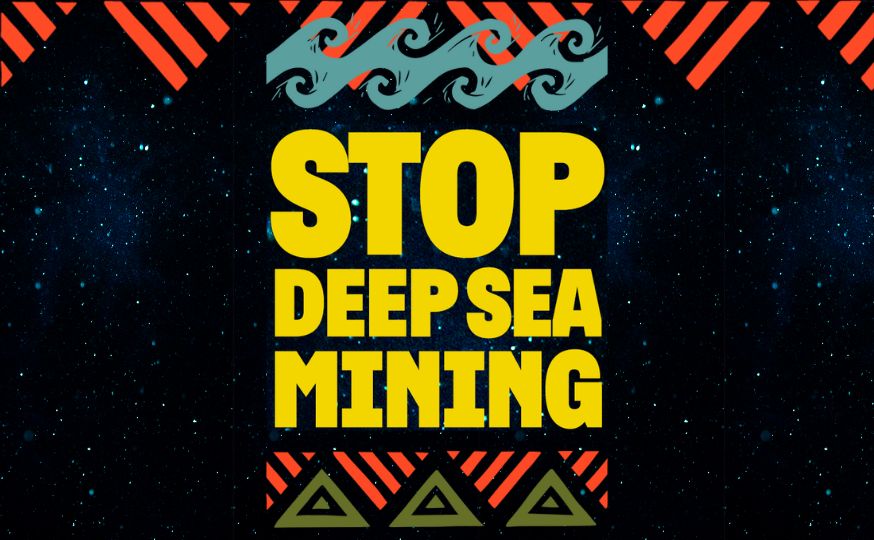
We need a global moratorium to stop the launch of this destructive new extractive industry. Join the Campaign.
Add your name

